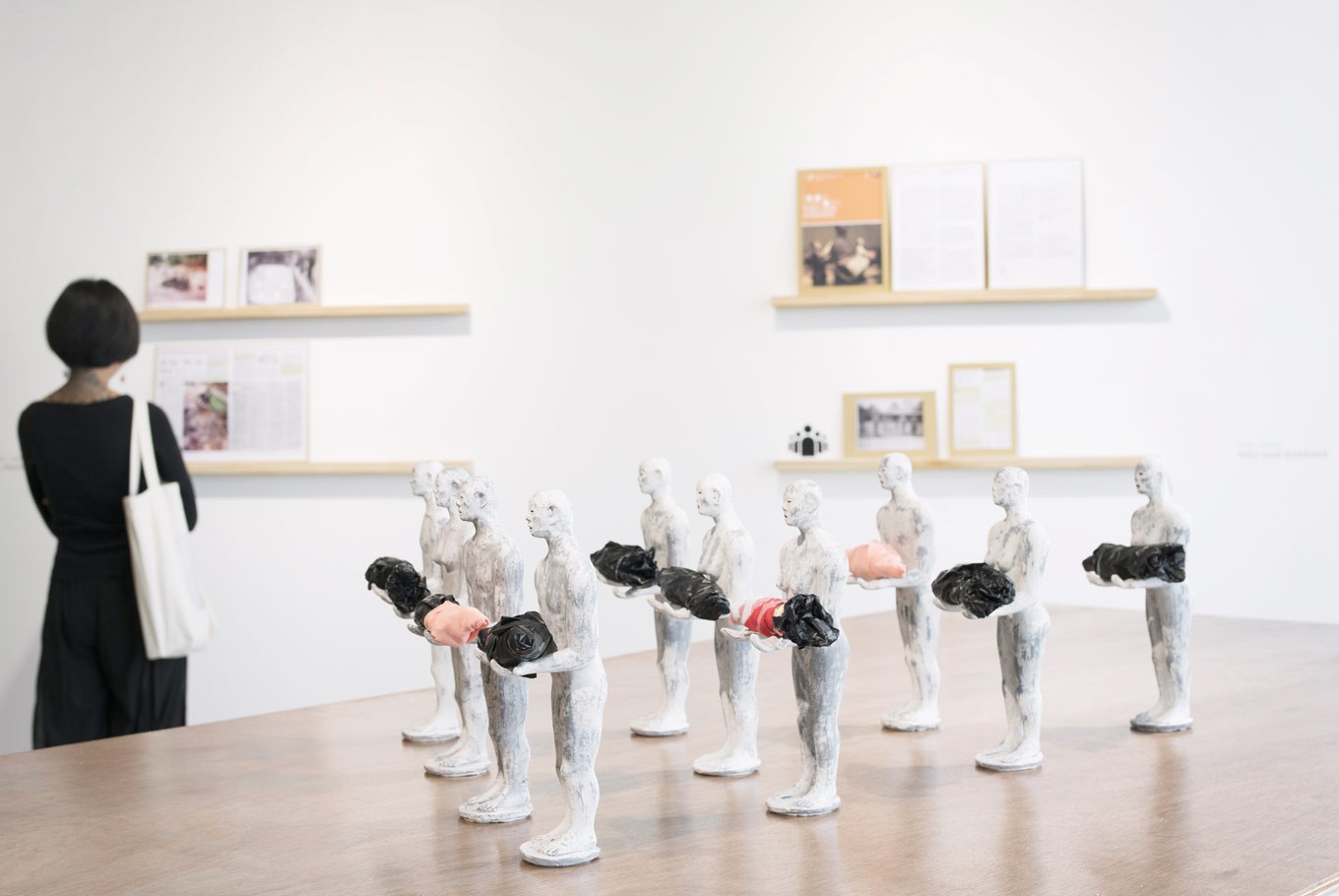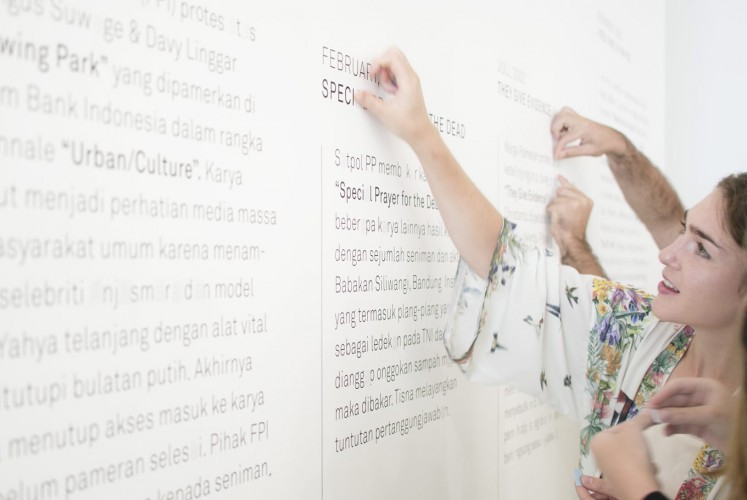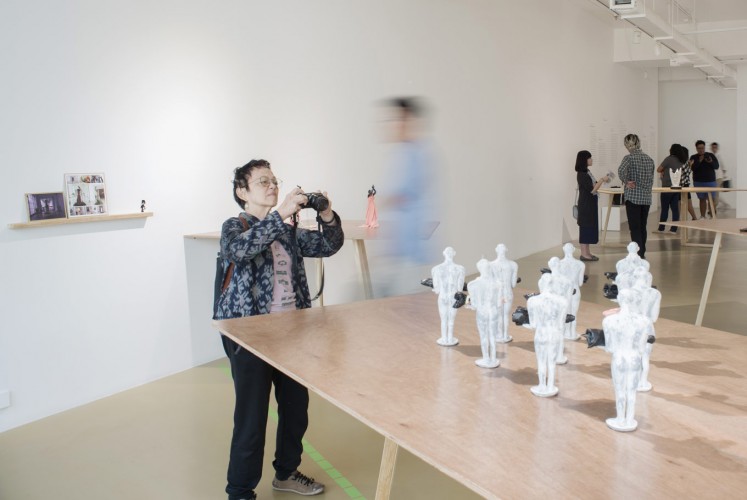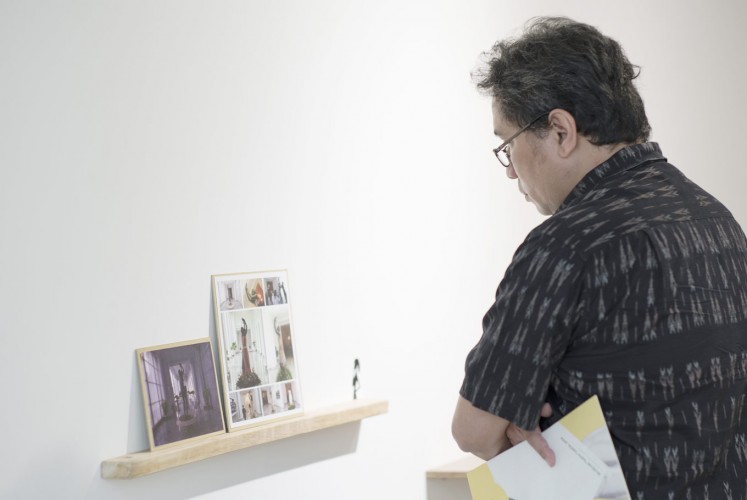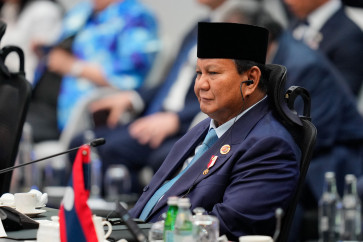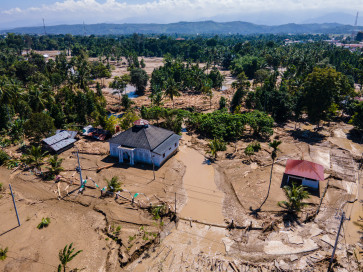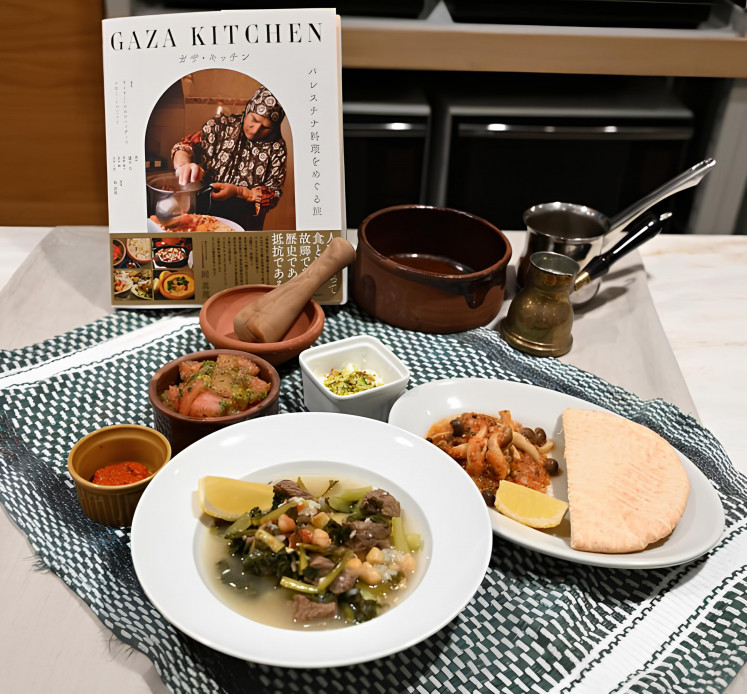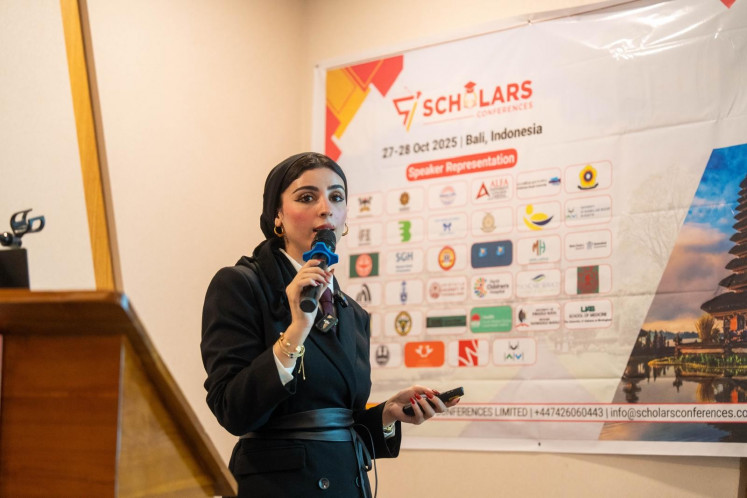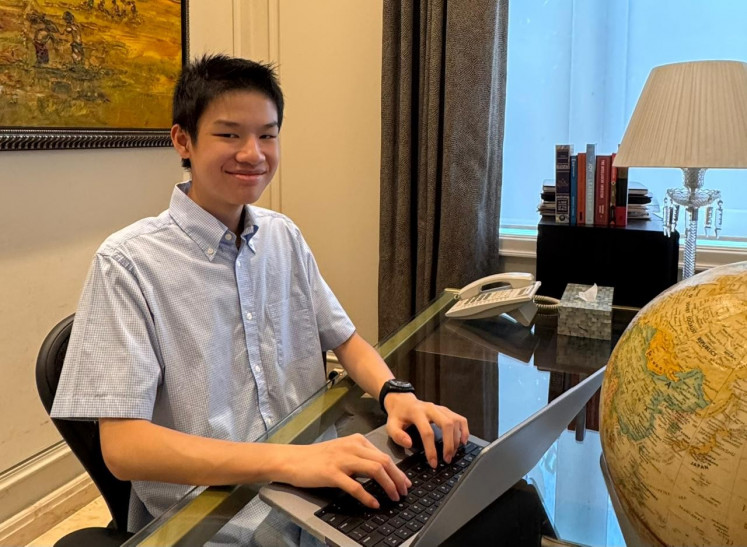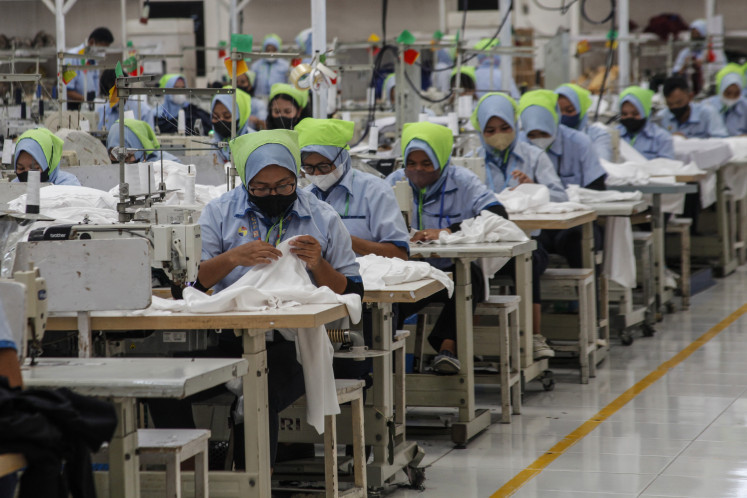Popular Reads
Top Results
Can't find what you're looking for?
View all search resultsPopular Reads
Top Results
Can't find what you're looking for?
View all search resultsUnsung Museum highlights Indonesia’s democracy challenges
The exhibition highlights the most important issues challenging Indonesia’s ongoing struggle for democracy since the nation’s colorful, fledgling journey began.
Change text size
Gift Premium Articles
to Anyone
T
he Museum Tanpa Tanda Jasa (Unsung Museum) is a landmark, traveling exhibition that is currently crisscrossing the country and features miniature artworks that are big on cultural significance. The exhibition highlights the most important issues challenging Indonesia’s ongoing struggle for democracy since the nation’s colorful, fledgling journey began. These issues include tolerance of minority groups, along with ethnic, ideological and religious diversity and collective harmony.
Taking a series of chronologically banned, destroyed, removed or censored artworks the Unsung Museum displays them in scaled-down miniature versions of the real things. Accompanying these mini-masterpieces are news articles from the time, together with amusing parodied public reactions and news media video installations.
“Art is no stranger to controversy; throughout its history it has presented works that have irked the moral guardians of the day,” said Yogyakarta-based curator Grace Samboh, one of many members of the Indonesian contemporary art community who have initiated the Unsung Museum in an event that characterizes the social conscience and synergy of some of the country’s most relevant and motivated artists and activists. “Sometimes to see why an artwork is deemed controversial, we need to see it from a different perspective, and what better way is there than to see it in miniature?”
An visitor attends the opening of the Unsung Museum at ROH Projects, Jakarta. (Wirya Satya Adenatya/File)
Beginning September 2016 at Jakarta’s ROH Projects, for three weeks the exhibition sets out to inform, not only citizens but also members of the Indonesian art industry, about the relevance of these pressing issues. The exhibition will be next showcased at Yogyakarta’s Kedai Kebun Forum from late October running into November, then opening in West Java, at Bandung’s Ruang Gerilya, 15 December until 7 January 2018.
“We are retelling stories of several artworks that were once considered a ‘public nuisance’ during the Reform Era because of three recurring reasons related to pornography, communism and SARA [ethnic, religious, racial and inter-group relations] by three elements in society [citizens/individuals, mass organizations and government],” Samboh said. “Based on these assumptions, several artworks attracted a variety of problems ranging from threats, restrictions and even destruction.”
The country with the largest Islamic population on the planet, with Christian, Buddhist and Hindu religious minorities, however, is currently undergoing one of its most turbulent and disruptive periods. The May 8 controversy at the Indonesian Islamic University’s Center for Human Rights Studies in Yogyakarta with the censorship of paintings and poetry carried out by members of the youth organization Pemuda Pancasila who enforced the closure of artist Andreas Iswinarno’s exhibition, Tribute to Wiji Thukul: Saya Masih Utuh dan Kata-kata Belum Binasa [I’m still complete and words have not yet been destroyed] on suspicion the works contained communist ideas, highlights the urgency of the Unsung Museum.
An visitor photographs part of the Unsung Museum. (Wirya Satya Adenatya/File)“Bearing in mind a number of concerns about the stability of [ideas within] democracy, as well as democratic behavior in today’s society, our main question is: What does democracy mean to each and every one of us today, as part of society, as citizens, and as someone who works in the arts?” Grace said, reflecting on the inspiration behind the exhibition. “We have adopted the concept of a mobile museum for the exhibition because of its informative nature and educational aspects, as well as its openness to the public.”
The mini works collected by the Unsung Museum include versions of: “Pinkswing Park”, a walled photomontage by Agus Suwage and Davy Linggar, exhibited at the 2005 Jakarta CP Biennale, it was deemed to be blasphemous by Islamic fundamentalist group the Islam Defenders Front (FPI) who forced the closure of public access to the work, while demanding prosecution of the artists, and They Gave Evidence exhibited in 2002 in Jakarta by Dadang Christanto, a major series of standing, naked ceramic figures, in their outstretched arms holding the remnants of burnings, drownings, beatings and other human mutilations, victims of oppression, social injustice and political violence.
Also collected are a miniature of a public artwork by Nyoman Nuarta that Islamic organizations protested against stating it was representational of Christian iconography and which was consequently dismantled from its site in West Java in 2010. Also, an work by Galam Zulkifli that was removed in 2016 from the new Terminal 3 complex at Soekarno-Hatta International Airport. Zulkifli’s enormous 12-square-meter painting included iconic figures in the development of the Indonesian nation. Seri Ilusi # The INDONESIA IDEA was taken down in order to avoid a polemic on social media as one of the portraits in the painting featured DN Aidit, the former chairman of the Indonesian Communist Party.
An visitor to ROH Projects, Jakarta examines the Unsung Museum. (Wirya Satya Adenatya/File)“Within conversations surrounding these artworks, the conclusion is often misunderstanding,” Grace explains. “The arts community believes the dismissal of these artworks was due to some people having misunderstood or failed to understand altogether. In fact, quite often the misunderstandings come not only from those who dismiss the artworks but also from the arts community itself.”
“The Unsung Museum is not an attempt to point out rights and wrongs. In light of democracy, we want to poke people’s awareness of equality of knowledge about rights and obligations of the various elements in the arts community—within the art disciplinary context.”
Along with Grace the Unsung Museum has been initiated by Aliansyah Chaniago, Fajar Abadi RDP, Jim Allen Abel, Julian Abraham “Togar”, Maryanto and Tamara Pertamina, while inviting other people, and aspires to continue inviting more people over time. “The Unsung Museum has already received a strong public response,” Samboh said. “We are now compiling the feedback, and the topics are being discussed in the hope that we can publish a book on views of our recent democracy through the art public’s perspective.”
“Our mission is to rekindle discussions about democracy in the Reform Era with the arts community while not closing itself off from the involvement of other members of the community.”
The Unsung Museum is scheduled to continue in Medan, North Sumatra, and Makassar and Manado in Sulawesi early in 2018. (asw)
***
Richard Horstman, a cultural observer with over 25 years’ experience in Indonesia, has supported the Bali and Indonesian art scenes for more than nine years as a journalist, writer, art tourism presenter and advisor at Cata Odata Art Space in Ubud. A bridge between the art world and the public, he has been published in The Jakarta Post and various other newspapers.
---------------
Interested in writing for thejakartapost.com? We are looking for information and opinions from experts in a variety of fields or others with appropriate writing skills. The content must be original on the following topics: lifestyle (beauty, fashion, food), entertainment, science & technology, health, parenting, social media, travel, and sports. Send your piece to community@jakpost.com. For more information click here.

